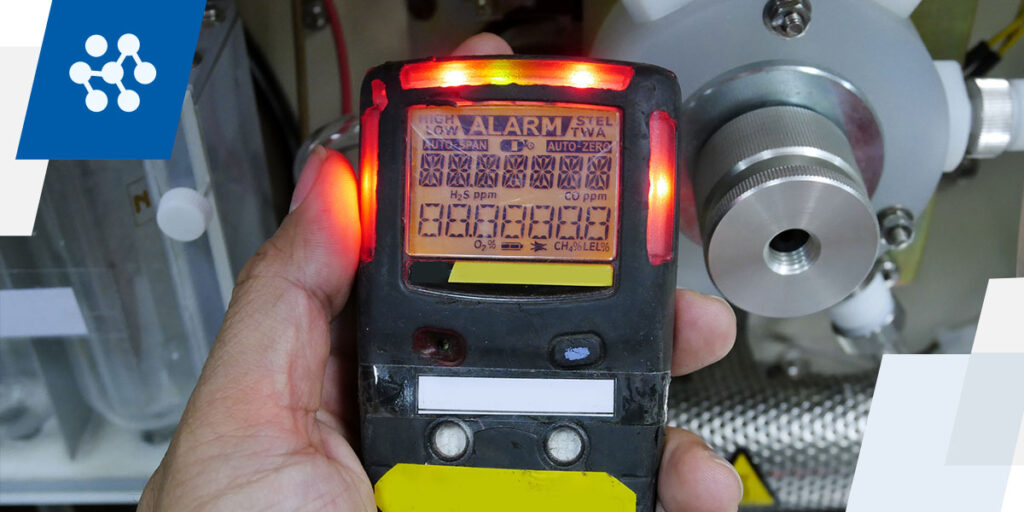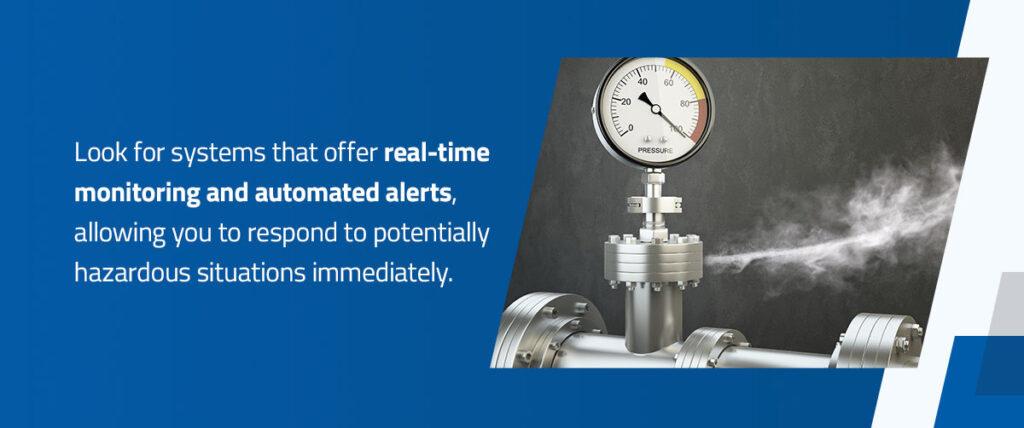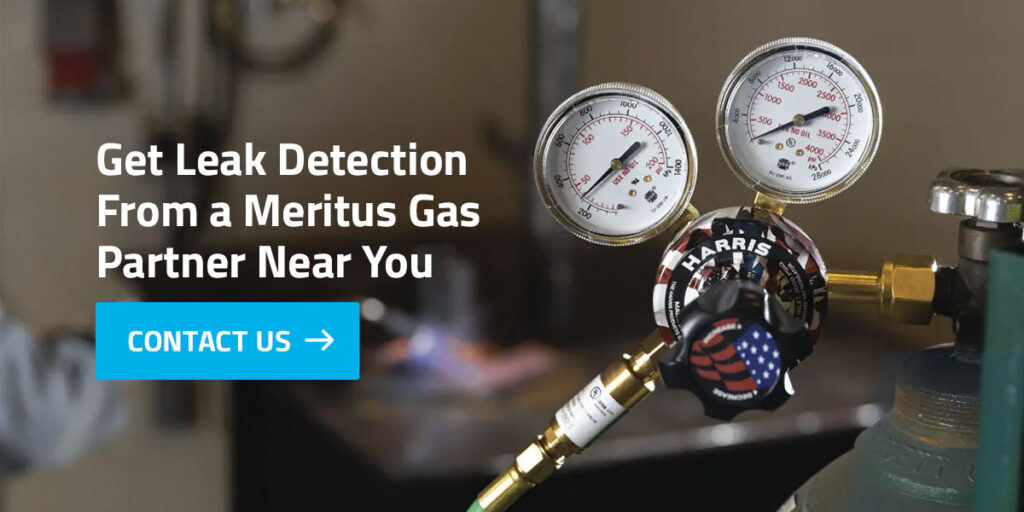

Gas leak prevention and detection are crucial for safety and compliance across many industries, including welding, chemical industries, utilities and semiconductor fabrication. Since gas leaks can lead to various health risks, injuries and fatalities, having prevention and detection measures in place is critical.
Having standard practices to identify potential hazards, monitor for leaks, evaluate the severity of leaks, and respond to emergency situations accordingly is essential to a safer and more compliant workspace.
Taking proactive measures to prevent gas leaks is the first step to creating a safer work environment. Gas leaks can occur due to worn-out, damaged, or malfunctioning appliances or pipelines, corroded pipes or cylinders, poor installation and/or maintenance, a lack of training, or human error.
You may do the following to combat these causes and have effective preventive measures in place:
There are many gas leak detection methods and devices you can incorporate into your workplace.
Gas leak sensors are one of the most effective safety devices you can install. Different types of sensors include:

One of the most important considerations when choosing gas leak sensors is looking for systems that offer real-time monitoring and automated alerts, allowing you to respond to potentially hazardous situations immediately. Additionally, make sure the system you select aligns with any relevant regulations.
Other leak detection tools include over-run alarms on green air supply nitrogen separators and in-line flow meters for beverage gas monitoring.
As always, active monitoring alarms are far superior to passive leak detection methods. If you currently have this type of passive leak detection (which you can identify as a tiny floating ball inside a plastic tube), be aware that it can be ineffective during busy service times.
We recommend active gas level monitoring over passive leak detection to our customers. At Meritus Gas, we can advise you on the cost and supply of available leak detection options.
Creating a comprehensive gas leak emergency protocol and response plan is crucial for compliance and safety. An ideal plan will include the following:
In the event of a gas leak, be aware of any possible confined spaces that may accumulate high gas concentrations. Depending on your industry and facilities, these may include keg coolers, closets, basements, and enclosed rooms. Do not enter that area if you suspect there is any chance of an accumulation of any type of compressed gas.
If you can, shut off the gas supply feeding the leak without putting a person at risk of entering a confined space. If you cannot safely shut off the gas supply to the leak and think there is a safety concern, contact your local fire department for assistance.
If you think you have a serious safety situation, call 911 immediately and request your local fire department respond. You can then call your local Meritus Gas Partners distributor to advise us of the situation and to receive further assistance and instructions.

Following safety protocols and having the right gas leak monitoring systems in place are vital safety practices for any company. By equipping your staff and having an emergency response plan, you can reduce potential risks and make your workspace a safer place for all.
At Meritus Gas Partners, our partners are trusted gas distributors who will gladly assist you in purchasing a gas leak alarm. Whether you’re planning on installing the alarm yourself or you would like our certified beverage technicians to perform the work, we are your partner in providing your employees with a safer work environment.
Visit any of our affiliated branches or reach out to us today with any questions for further assistance from our expert team.